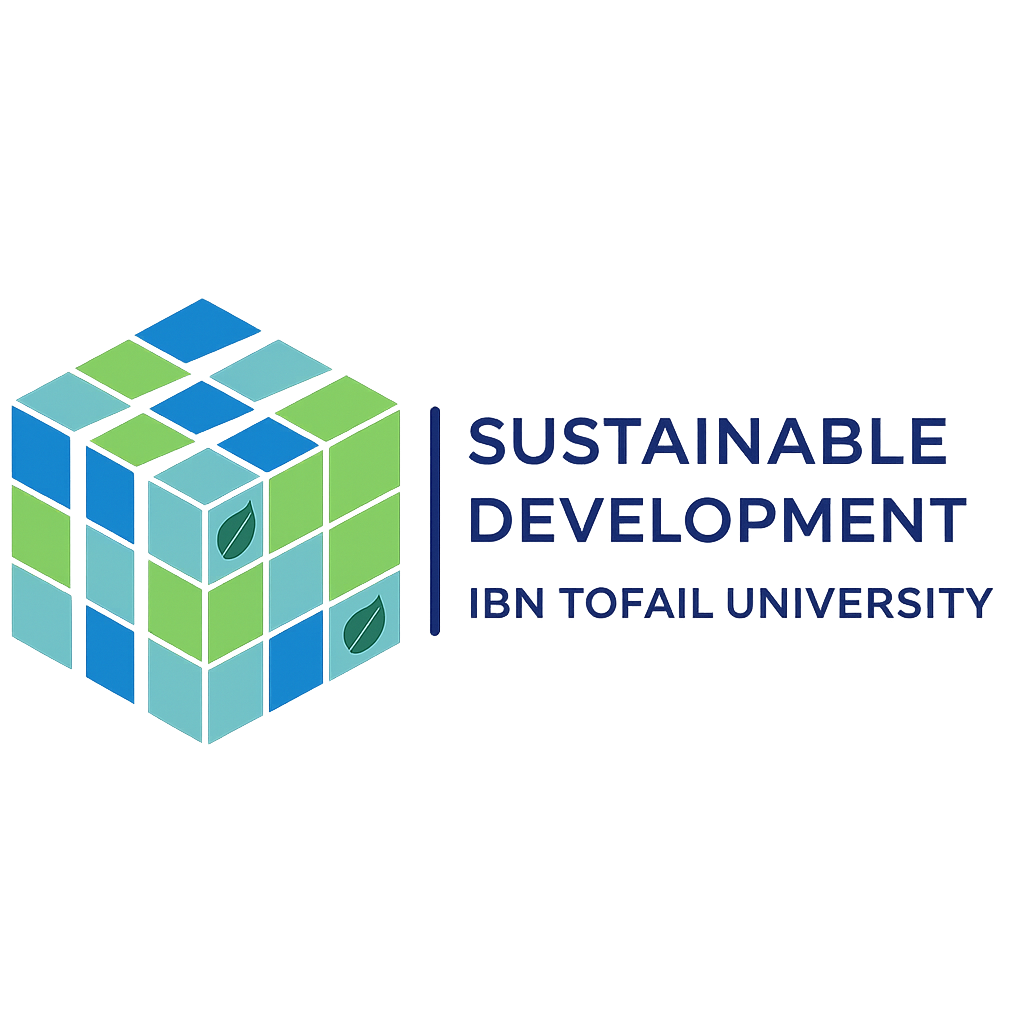Event : June 12–15, 2025
Partner : Laboratory of Physico-Chemistry of Materials and Surfaces, Ibn Tofail University– Mohammed First University
In a time when scientific research is increasingly expected to address global challenges, the Laboratory of Physico-Chemistry of Materials and Surfaces (LPMS) at Ibn Tofail University has brought forward a meaningful contribution. During the 8th International Conference on Materials and Environmental Science (ICMES 2025), held from June 12 to 15 in Saïdia, Morocco, two members of the LPMS research team were honored with Best Oral Presentation Awards. These accolades not only reflect the university’s growing presence in international scientific forums but also underscore its alignment with sustainability-oriented research and innovation.
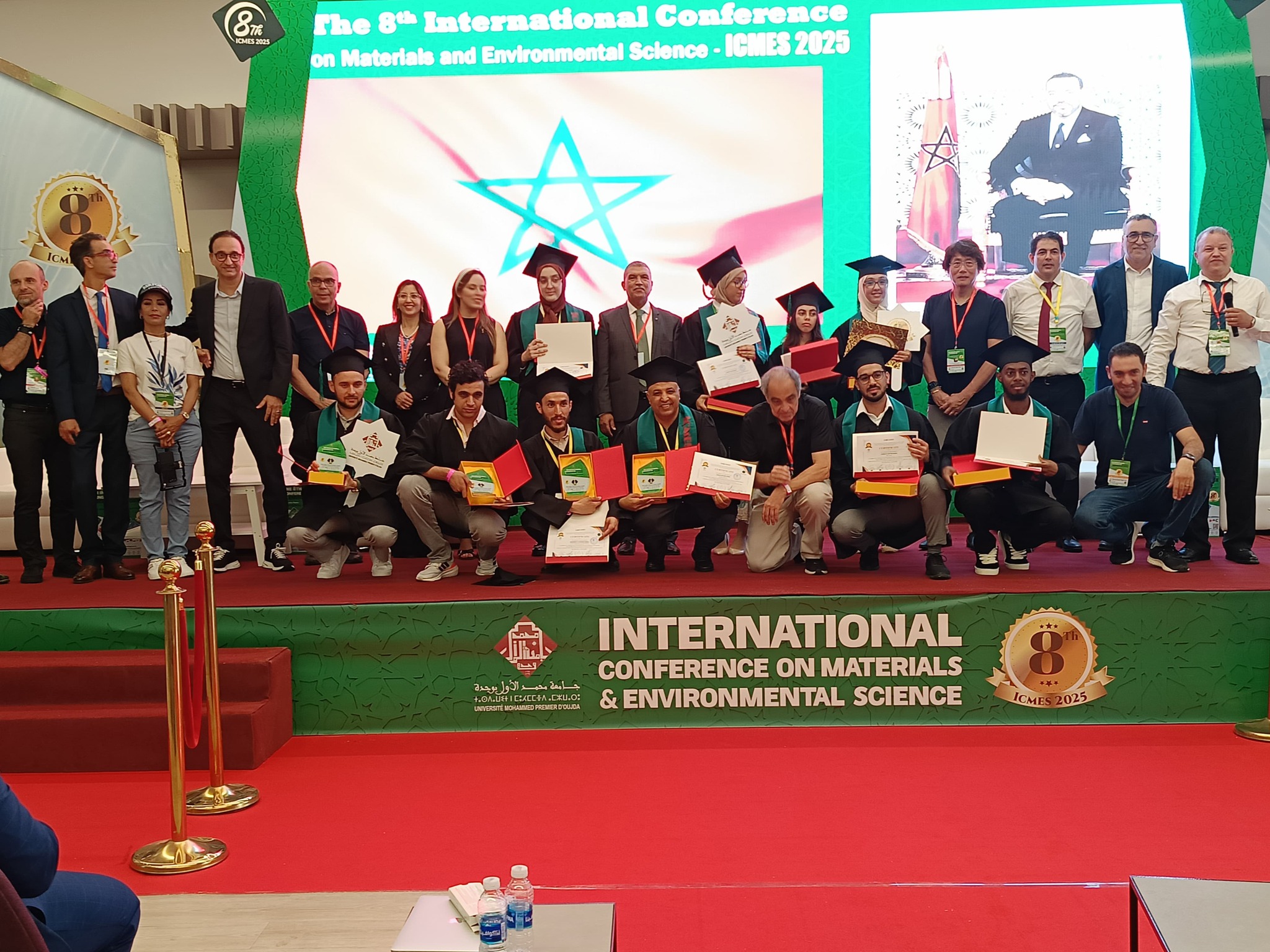
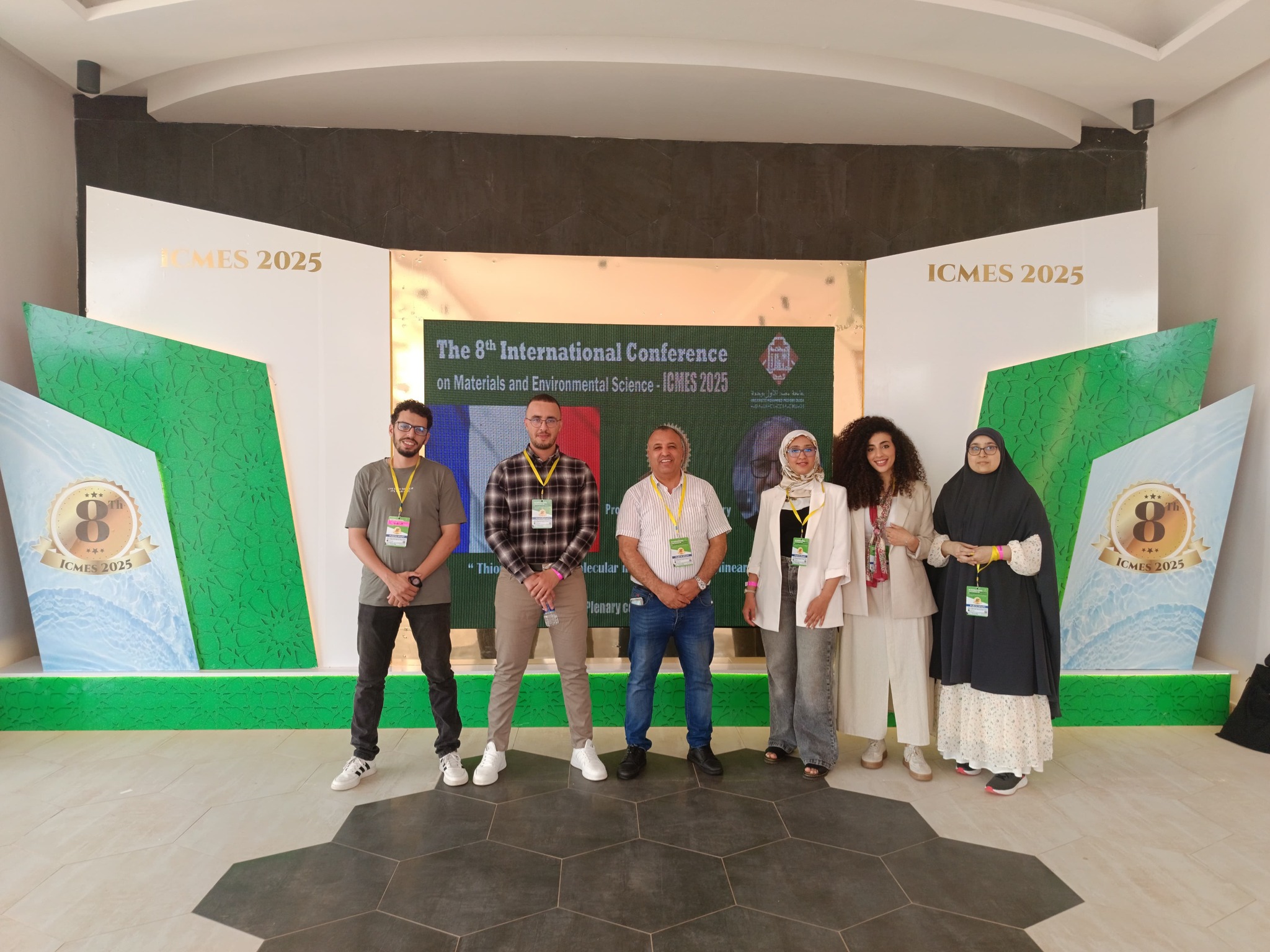
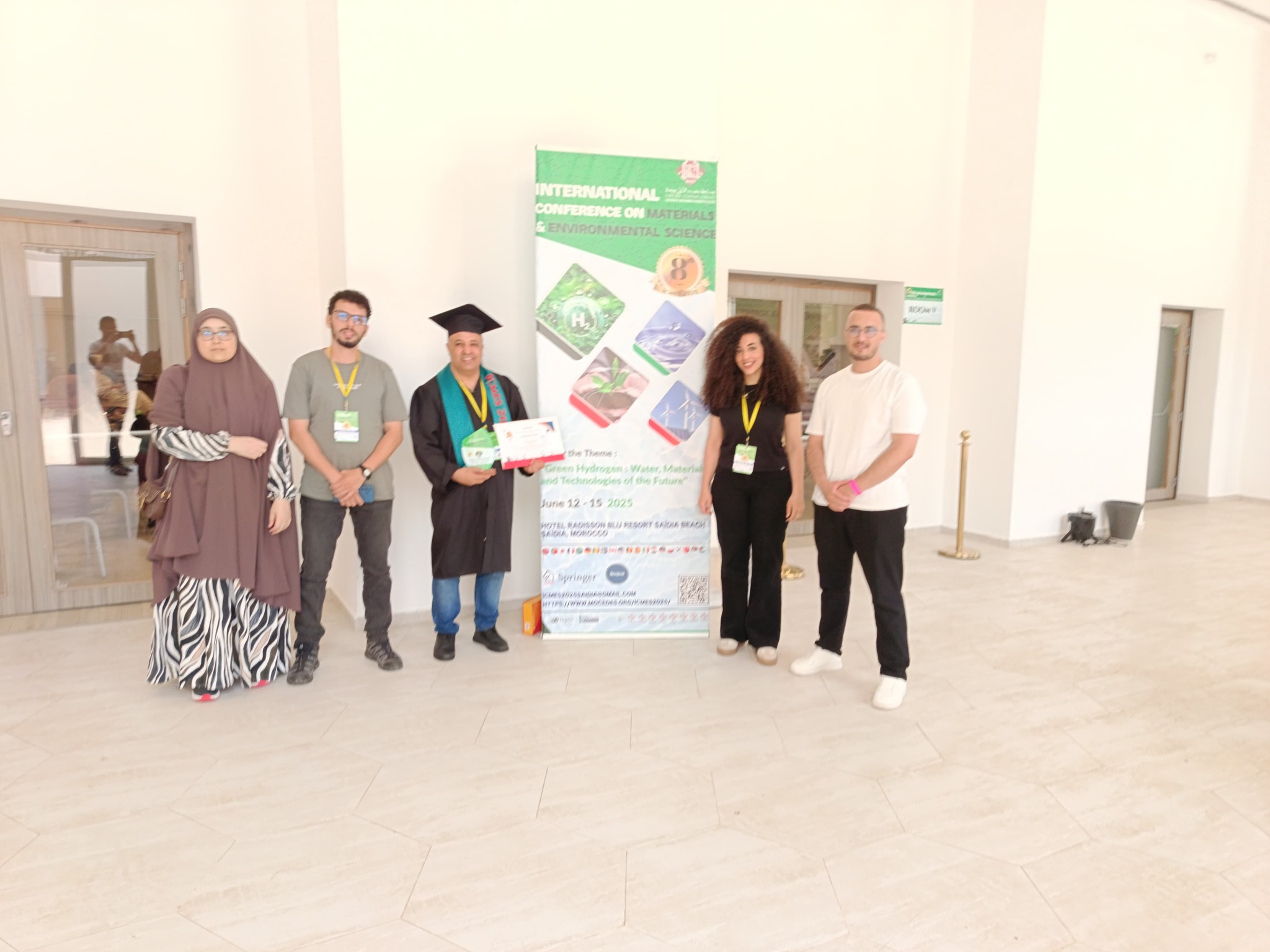
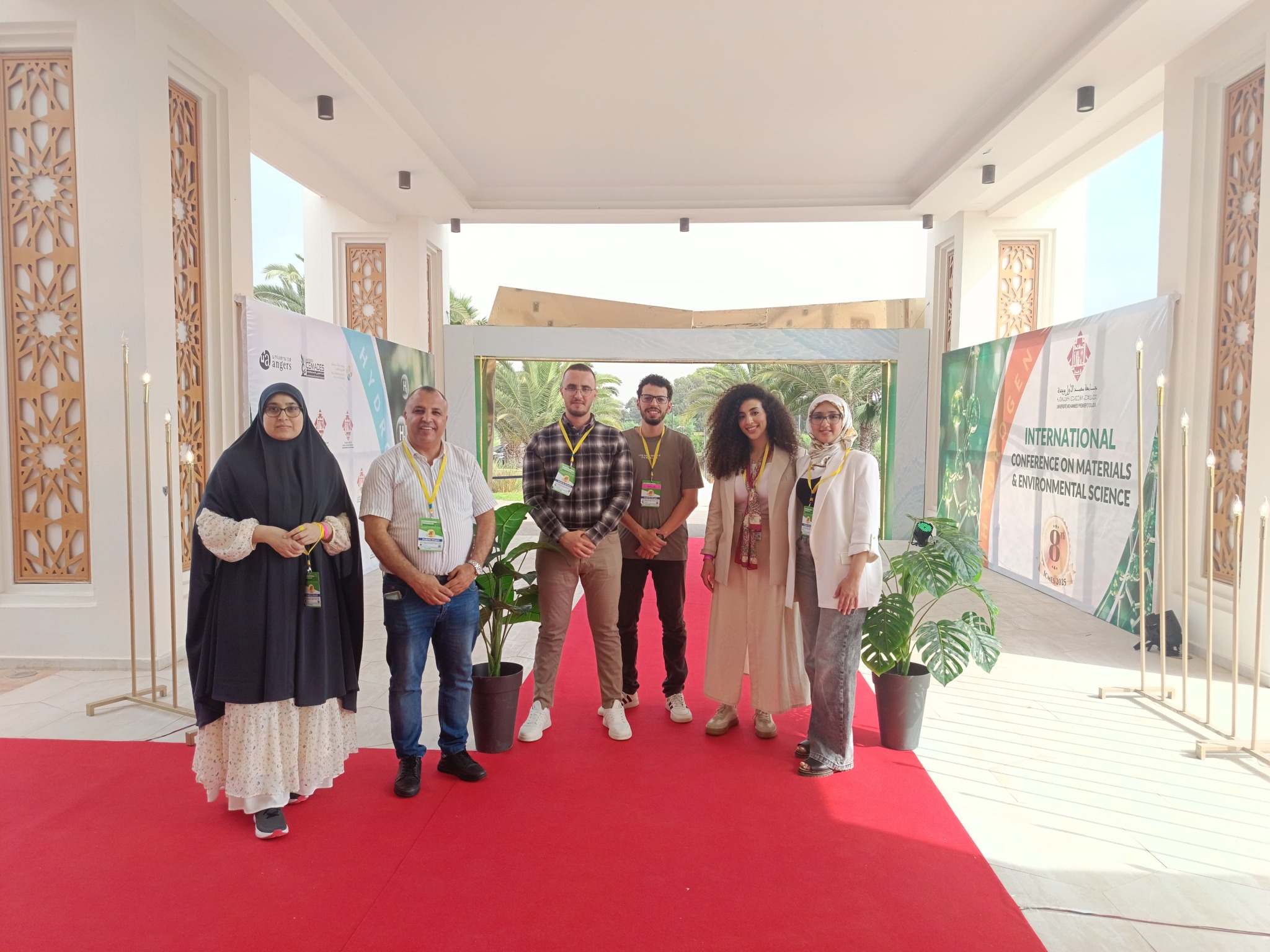
Held annually, ICMES serves as a premier platform for interdisciplinary dialogue on the future of materials, environmental technologies, and clean energy systems. The 2025 edition gathered scientists, engineers, doctoral students, and innovators from across the globe under the theme: “Green Hydrogen: Water, Materials and Technologies of the Future.” The conference encouraged exchanges on cutting-edge research in green hydrogen, advanced nanomaterials, sustainable water systems, and eco-compatible technological applications. ICMES 2025 positioned itself not merely as a scientific meeting but as a strategic convergence point for knowledge, responsibility, and impact-driven research.
Within this international setting, LPMS’s performance stood out through the outstanding contributions of both a senior and an emerging researcher. Professor Khalid Nouneh was awarded for his presentation titled “Controlled deposition of nanostructured hierarchical silver nanowire and macroporous geopolymer for sensing and energy application.” His research introduced a pioneering approach for developing hybrid materials that combine structural efficiency with functional responsiveness, using low-impact processes. The integration of silver nanowires within a geopolymeric matrix is especially relevant for creating sustainable devices used in energy storage and environmental sensing; technologies increasingly vital in the transition toward cleaner systems.
Equally remarkable was the recognition received by Hafsa Diyagh, a doctoral researcher supervised by Prof. Nouneh. Her presentation, also awarded as best oral communication, reflected not only scientific clarity and technical depth but also a strong ability to communicate complex findings to a multidisciplinary audience. Her work, situated within the same scientific vision, illustrates the quality of training and mentorship at Ibn Tofail University. It also reinforces the role of young researchers as key contributors to national and international scientific efforts, particularly in fields related to green innovation.
These achievements are not isolated; they are indicative of a broader institutional strategy that positions research as both a tool for knowledge creation and a means of responding to environmental and societal priorities. LPMS’s work falls in line with global sustainability goals, particularly in the development of materials with reduced environmental footprints and the exploration of technologies that enable cleaner production and consumption. The awarded studies reflect a shared commitment to research that is not only theoretically robust but also practically meaningful and environmentally conscious.
Moreover, the recognition at ICMES 2025 carries significance for the university as a whole. It confirms Ibn Tofail University’s capacity to produce high-level scientific outputs while nurturing a research culture based on collaboration, integrity, and purpose. The Faculty of Sciences in Kenitra, in particular, is emerging as a center of excellence in applied sciences, with a focus on solutions that bridge research and reality. The presence of its researchers on international platforms amplifies the visibility of Moroccan academic institutions and strengthens their contribution to the global scientific dialogue.
Looking ahead, this recognition serves as both a milestone and a motivator. Ibn Tofail University is determined to build on this momentum by encouraging interdisciplinary projects, expanding its international partnerships, and continuing to support the intellectual growth of its academic community. By investing in research that intersects with environmental needs, the university reaffirms its commitment to science with a purpose; science that informs, inspires, and transforms.
